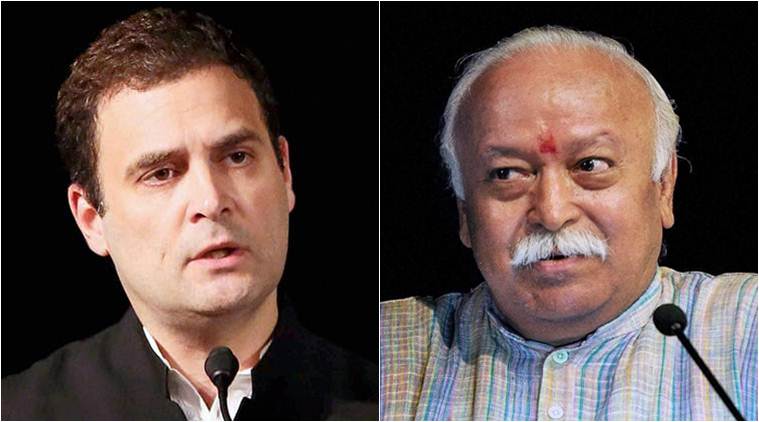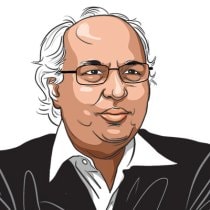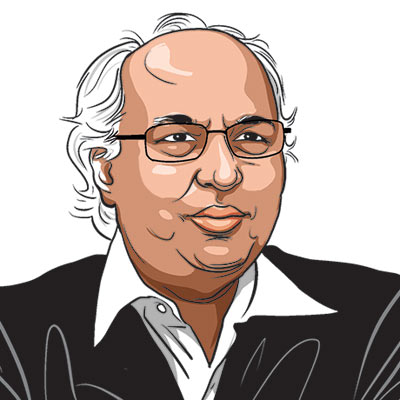Why Rahul, Bhagwat must talk: Dialogue could weaken centrality of ‘secularism vs communalism’ debate
Why Rahul, Bhagwat must talk
That dialogue could weaken centrality of ‘secularism vs communalism’ debate

Rahul should accept the RSS invitation for a talk by Bhagwat next month, and thereafter invite the RSS chief and his colleagues to the Congress headquarters for a serious exchange of views. (File photo)
No nation can sustain deep internal divisions in its society and polity without suffering consequences in terms of unbalanced development, lack of social cohesion, and confusion about its identity and destiny. Divisions are different from diversities. Diversities are natural, and India having an abundance of them is a source of our strength. Weaknesses and maladies are the outcome of diversities becoming divisions, which close the doors of consensus and cooperation. However, weaknesses can be minimised and divisions prevented when dialogue builds bridges of understanding and even common purpose between adversaries.
India’s colonisation and its bloody Partition in 1947 were the result of the inability of social constituencies, organisations and leaders to reconcile their differences at least to the extent of resolving to live together as a united nation. Sadly, even after these grim lessons, independent India has not found ways to ensure sustained dialogue, reconciliation and cooperation among adversaries.
A case in point is the continuing hostility between the Congress and the Rashtriya Swayamsevak Sangh (RSS). A part of this hostility is on account of the political rivalry between the Congress and BJP, which belongs to the larger RSS parivar. But the Congress-RSS antagonism is also, more fundamentally, due to serious ideological differences. The depth of differences between their worldviews, their ideas of India, and their evolutionary trajectories, can neither be denied nor belittled. The Congress believes in an inclusive and secular India, a belief it acquired and internalised during the freedom struggle, of which it was the principal organiser. Mahatma Gandhi, Jawaharlal Nehru and countless other freedom fighters embodied this belief, which was not shaken even when the Muslim League demanded, and got, a “Muslim nation” on the basis of the spurious “Two-Nation” theory.
This belief differs from the idea of “Hindu Rashtra” — India as a “Hindu nation” — which is central to the RSS’s ideology. As Walter Andersen and Shridhar Damle write in The RSS: A View to the Inside, in this idea of Hindu India, “One can practise any religion as long as worship is done within the framework of cultural Hinduism and with respect for national traditions.” This exclusionary idea of India is as offensive as it is untenable. Muslims and Christians in India are Indian Muslims and Indian Christians; they can neither become, nor can they be coerced to become, “Muslim Hindus” and “Christian Hindus”. India’s Constitution is the most reliable guarantor of the freedom of faith and a defender of the idea of an inclusive and secular nation.
Is there still a need for a dialogue between the Congress and the RSS? Yes. This is because, first of all, both are important constituents of the Indian nation. Neither can the RSS wish away the Congress (despite its diminished electoral strength) nor can the Congress wish away the RSS (whose strength has grown enormously in the past four decades). Second, the two organisations are adversaries but not enemies. There cannot be enmity between those who belong to the same nation. When enemy nations can have a dialogue, why not the Congress and RSS?
Third, when adversaries meet and talk, each is bound to discover something good about the other. Thus, Congress president Rahul Gandhi will surely recognise that there is nothing “fascist” about the RSS, notwithstanding it being described as such by the communists (whose own strength has shrunk to the point of rendering them irrelevant). He was also wrong in likening the RSS to the Muslim Brotherhood. A closer study will reveal to him that the RSS is beginning to embody a good bit of India’s moderating diversity, forcing it to revise (slowly, not dramatically) many of its rigid standpoints on language, caste and even religion. Reality has forced it to abandon its advocacy of “Akhand Bharat”. Similarly, the RSS will be forced to subtly change its understanding of Hindutva, making it more liberal and integrationist.
Similarly, going forward — especially after the BJP’s electoral graph begins to go downwards — the virtues of the Congress and its necessity for India will be better acknowledged by thinking people in the RSS. It is not for nothing that RSS chief Mohan Bhagwat chided the BJP on its boastful slogan, “Congress-mukt Bharat”.
When former President Pranab Mukherjee visited the RSS headquarters in Nagpur in May, I wrote in this newspaper that this “should be the beginning of a wider process of dialogue between the Congress and RSS-BJP, between Muslim organisations and RSS-BJP, and also between the Left and RSS-BJP”. Rahul Gandhi should not shy away from such dialogue because he should remind himself of the fine words he had spoken when he took over as Congress president in December 2017: “I want the Congress to become an instrument for dialogue between all of us.”
The Congress-RSS dialogue, if it ever takes place, will not dissolve all their differences. Nevertheless, we can deem it a success if it weakens the centrality of the debilitating “secularism vs communalism” debate, and strengthens the possibilities of consensus and cooperation on the real challenges — reforms for better and corruption-free governance, economic reforms to eliminate poverty, ways to promote social justice and harmony, a lasting solution for the Kashmir problem, normalisation of India-Pakistan relations, and resolution of the India-China border dispute. In short, the challenges India has to overcome to achieve its full potential — the common aspiration of both the Congress and RSS.
Rahul should accept the RSS invitation for a talk by Bhagwat next month, and thereafter invite the RSS chief and his colleagues to the Congress headquarters for a serious exchange of views. Isn’t eradication of untouchability in dialogue also an important point of social reform and national renewal?
The writer was an aide to former Prime Minister Atal Bihari Vajpayee
For all the latest Opinion News, download Indian Express App
More From Sudheendra Kulkarni
- Atal Bihari Vajpayee (1924-2018): Democrat in Nehruvian mouldHumanity and empathy distinguished Vajpayee from his peers...
- A visit that shows the wayPranab Mukherjee’s proposed trip to Nagpur holds a lesson for Rahul Gandhi: Don’t be guided by the Left’s view of the Sangh..
- Fair justiceFeeling the heat of the Opposition’s allegation that it is “anti-Dalit”, the Modi government quickly decided to file a review petition against the apex…












.png)



























No hay comentarios:
Publicar un comentario